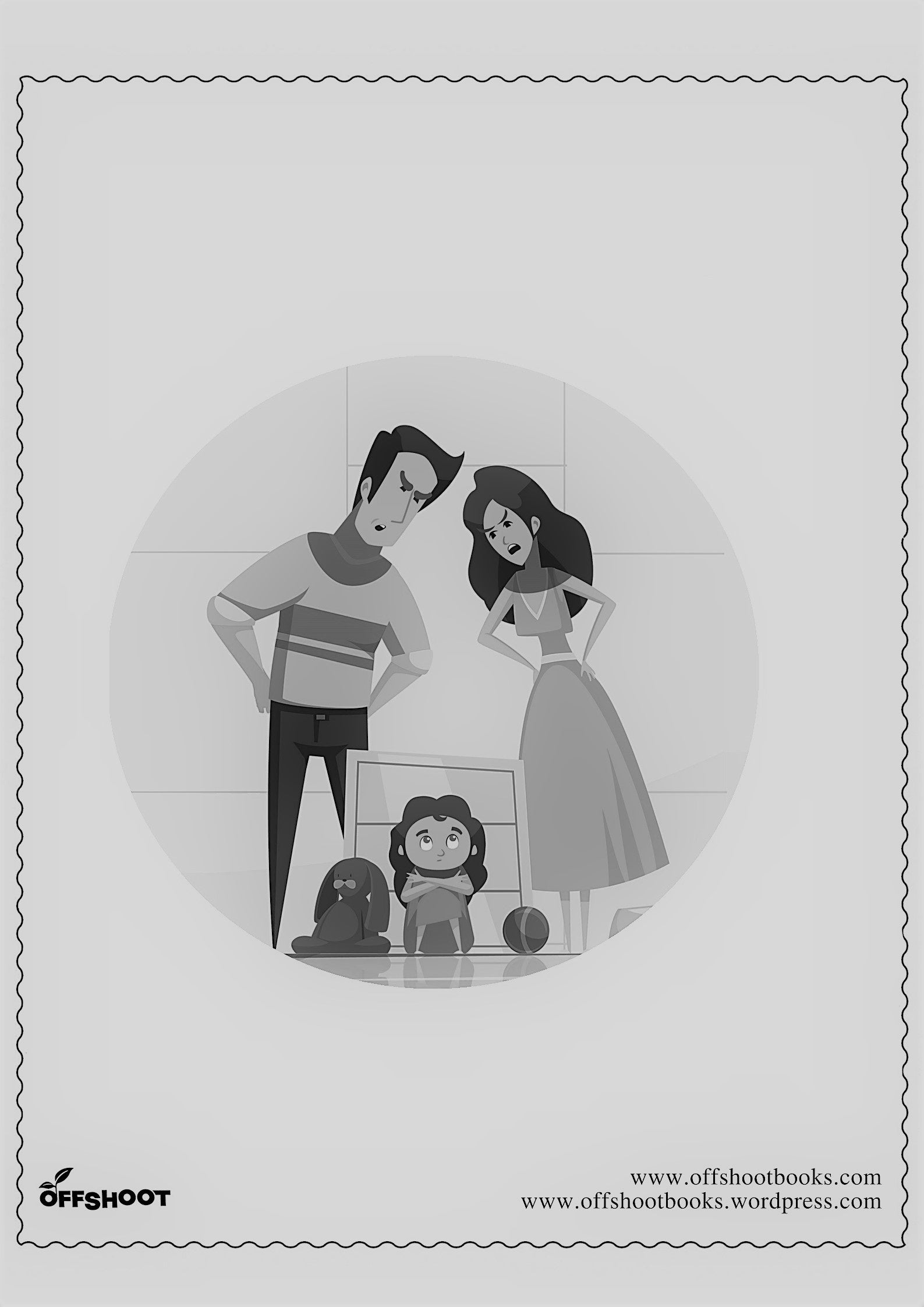
7 Things You Should Never Do In front Of Your Child
| Offshoot Books
Kids are innocent beings who learn from what they see in their surroundings. As kids, they are at an age where they are curious about many things and wish to know more about them. In this process they unintentionally adopt certain habits from others.
This is all the more reason for parents to think about the kind of environment they provide to their kids to grow in. A harmonious environment where the child receives ample amount of love, respect and right education helps a child grow into a capable and respectful person. On the other hand, an environment deprived of affection and respect can leave a scar on the child's mind.
Even when you wish to aim for the former, there are instances where you might not be in your control. No matter what, here are seven things you must not do in front of your child.
1. Never disrespect others: It is important that you treat others, be it your family member, guest or even a stranger, with respect. Do not look down upon them. This is also meant for living beings other than human beings and non-living beings. Disrespecting someone not only mean inflicting them with verbal harshness but is also evident when you ignore someone. Therefore, treat others the way you want yourself to be treated.
2. Never use abusive language: As adults we often tend to disregard the presence of young kids around us and in order to vent out our frustration, resort to using derogatory language. To start with, foul language should not be a part of our daily lives let alone be used in front of kids. Excessive usage of such language finds its way in our dictionary and can slip out even when we wish to be careful.
3. Never resort to physical abuse: When your child acts in a mischievous manner and refuses to listen to you, instead of resorting to physical harm, sit down and politely have a word with her/him. Physical harm will only give your child mental scars that won't heal with time. On the other hand, explaining things to them creates greater level of understanding. Keep in mind, causing harm to a person is not the lone case. Instances of animal cruelty also form a part of physical abuse, so be careful how you treat everyone and everything around you.
4. Do not display bad habits: We understand that quitting bad habits takes time. You can not expect a person to stop doing something she/he has been doing for years, in a day. While it is important that others around you be patient as you try to get rid of your bad habits, it is your duty to ensure that you don't display this side to children. Be it smoking, drinking or any other bad habit, keep it to yourself when around children.
5. Do not shout or scream: If you're angry about something, have a word with the concerned person with a rational mindset. As mature human beings, try to sort out the mess as adults. While screaming your thoughts may make others hear your point (you're shouting at the top of your voice, after all) but you won't be able to get your point across. Moreover, children will be quick enough to pick this bad habit, or it might also even scare them. Therefore, be careful of what you say and how you say it.
6. Do not tell lies: When you (mis)inform others that you aren't at home (even when you are) or when you call in sick at work are all instances of white lies. It does not matter if it's a small lie or a big one, a child knows that it's a lie. In such cases, it is difficult to explain them the situation. Therefore, do not get yourself in a mess that might leave you tongue-tied when confronted by the innocent questions (read truth) of children.
7. Do not stay addicted to your phone: When you're with your family, ensure that you give them your time and attention. Do not be immersed in your phone. If you remain glued to your device, your child will prefer to take up the 'hobby'. Instead talk to your family, ask them about their day, make plans and many happy memories.

Leave a comment
Your email address will not be published.